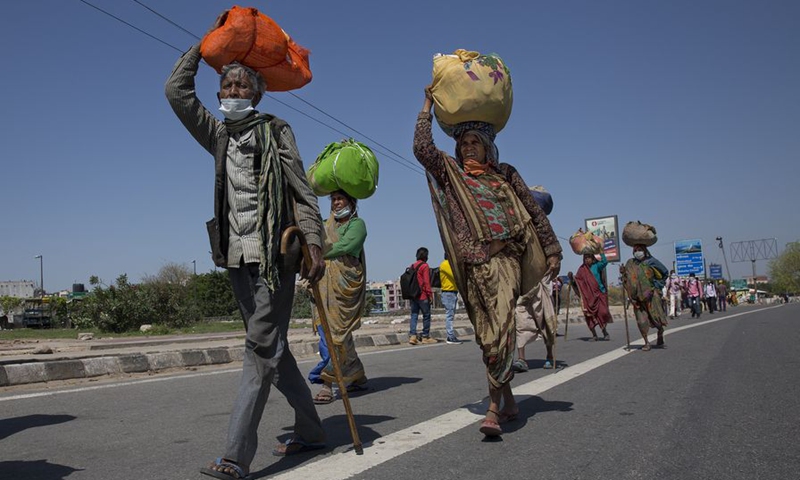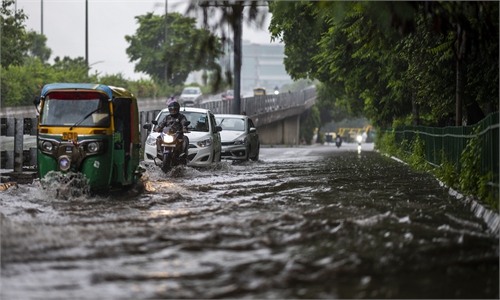
Photo: Xinhua
The impact of the coronavirus pandemic on the economy of India, Asia's third largest, and its spillover effects are moving in a worrying direction.
The World Bank has said in its latest India Development Update that income losses and unemployment triggered by New Delhi's sloppy job to contain COVID-19 spread in the country, are likely to push as many as half of India's population back into poverty, erasing its poverty reduction efforts over the past two decades.
Meanwhile, an analysis of 270,000 antibody tests conducted by a leading private laboratory across India has showed that an average 26 percent of Indians may have already been infected with the coronavirus.
These figures highlight the severity of the pandemic situation in India. Under these circumstances, it seems unrealistic to expect the Indian government to bring the wave of outbreak under control and restore economic momentum in the short term.
The impact of the pandemic on the Indian economy is far from over, and so is the risk of a protracted and deep economic contraction.
While it is unclear to what extent India's economic downturn will affect domestic consumption, if half of India's population really falls into poverty as predicted by the World Bank, the spillover effects will inevitably hit the Asian economy and beyond.
In the past, India was regarded as a promising engine of global economic growth, given its large population and market potential.
Many companies entered the Indian market in hopes that an early foothold would support the development of their own industry chains and business expansion in South Asia. Now the pandemic has altered India's economic landscape, sending shockwaves through regional industry chains and business circles.
India's financial risk also should not be underestimated. Despite its weak economic fundamentals, the stock market in India has been booming, with the Sensex on a rally since March. The divergence between stocks' performance and economic reality carries huge risks, and it's also a source of uncertainty for the fragile economy.
What's disturbing us is that the more challenging India's domestic economic situation is, the more nationalistic sentiment rises in that country, and this trend has played an increasingly important role in its geopolitical strategy and choices. This situation is creating new uncertainties over issues like whether India is still able to maintain its political independence and non-alignment principles.
India's trade policy has been subject to the influence of such geopolitical risks. India has been escalating tensions with China on economic and trade issues in recent months, by boycotting Chinese products, banning Chinese apps and restricting Chinese investment, which will only hurt the frail economy more.
Asia and the world at large need to be vigilant toward the spillover of India's economic predicament and geopolitical risks, which show no signs of abating now.



